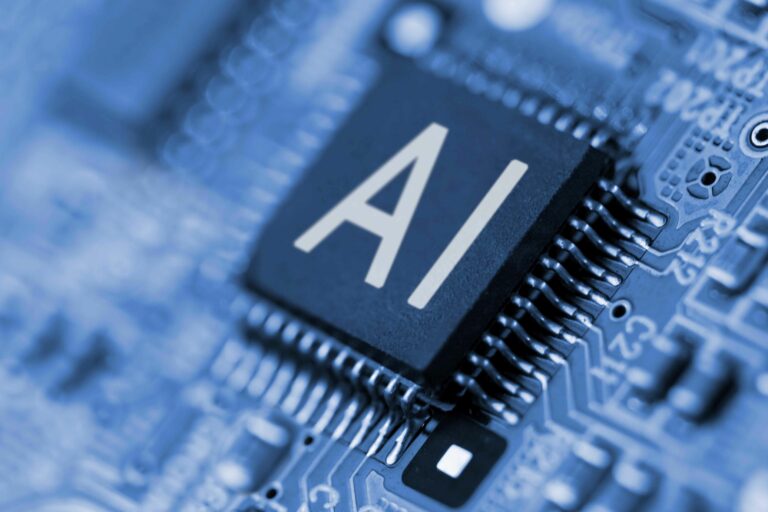IT or not IT?
Challenges in the IT industry through the eyes of a recruiter from Michael Page
Poland is a significant player on the international stage in the IT industry, especially in the areas of artificial intelligence, big data or machine learning. These are at the same time the fastest growing and key areas today, generating new opportunities, but also challenges and threats for the sector. Despite the constant changes and the prevailing slowdown in IT, the market still sees a high demand for programmers or testers, as well as an increasing number of job offers for employees specialized in the above areas. Soft skills are also gaining in importance,” says Monika Wisniewska, director of the technology department at the international HR consulting firm Michael Page.
Over the past few years, expectations of IT employees and candidates have changed dramatically – both in terms of technology, positions and necessary competencies. For this reason, those responsible for building IT teams not only need to keep abreast of what is happening in the industry, but also be able to anticipate changes and trends in the field of modern technology. Professional recruitment firms such as Michael Page are constantly studying the labor market and determining its prospects from the point of view of both employees and employers. Using this knowledge can be crucial to a company’s market advantage.
New challenges on the road to growth
Among the leading trends in the IT industry today, the use of cloud solutions stands out in particular, as an answer to the problem of collecting and storing large amounts of data. This technology is present in many areas, including enterprise resource planning (ERP) systems. The most popular at present are SAP-class systems, which are being introduced to companies around the world. An example is the logistics industry. In organizations of this type, there is an increasing emphasis on process automation with a particular focus on cloud solutions.
Another challenge for the industry is securing the data collected, going hand in hand with the with adapting to the development of artificial intelligence. AI guarantees a number of new opportunities for IT, but in some cases it can pose a kind of threat. It is evolving so rapidly that security departments are unable to secure various types of stored data or applications. The challenge for the industry is therefore to find the right form of protection for the data it holds.
– Further digitization of processes, including cloud-based data management, is a strong trend for the future, given the drive for sustainability as well. Companies supporting responsible operations will place a strong bet on such technology. The increased importance and use of the cloud in the IT industry is already translating into demand for specialists in this field, says Monika Wisniewska, director of technology at Michael Page.
Programmers for the modern IT market
One of the key current challenges for the IT sector is the decline in Software Development recruitment, compounded by the development of artificial intelligence. AI will further reduce the demand for employees in the future, primarily those involved in programming or application testing. These changes are inevitable. Nevertheless, there are still plenty of job opportunities for programmers.
– For those with an average of a few years of experience in the industry, who feel comfortable in this area, I recommend expanding their competencies as soon as possible towards the area of machine learning, big data or AI. This is a great potential for the market. People in senior positions will continue to be in demand – nothing will change here. Those who have a lot of experience in software development, such as software architect, will win,” adds Monika Wisniewska.
There are still vacancies available for people with not much experience in data management or machine learning, as the market is very receptive and there is not yet a large pool of high-end candidates in these areas. These are new disciplines, so those interested will be able to develop in parallel with a particular IT field.
In order to meet all the needs of customers, talk to them about the business and co-create it, programmers will also need to have well-developed soft skills. It is increasingly valuable to combine these qualities with technical skills, and this may soon become a bargaining chip on the job market.
AI vs. the human factor
Companies today are struggling with the mental problems of employees, caused by remote work, among other things. Experts point out the correlation between the lack of social interaction and the increase in mental illness. With this in mind, the IT industry is increasingly turning to hybrid work. However, companies don’t want to impose anything on employees, just be more flexible. Encouraging employees to work from offices is therefore not easy, but the argument can be made for improving their mental health.
A growing number of researchers are sounding the alarm that the increase in daily interactions with artificial intelligence will reduce human interactions. Already today, just typing a chat question is enough to get an answer on almost any topic. It is worth emphasizing at the same time that the question must be properly asked. Thus, those who can formulate it properly, i.e. write a prompt, will gain an advantage. Those who have higher technical skills and can talk to AI will get a faster and more precise answer, which means more success.
– In a few years, it may be that instead of talking to AI, people will only want to talk to another human. Artificial intelligence presents many opportunities, but I also see a number of risks. A robot does not have emotions, and it will not replace professional or private relationships with another person,” Monika Wisniewska concludes. – With the progressive transfer of life and work to the virtual world anyway, professions in which the human factor is the most important will surely develop. For example, psychotherapist – this is the profession of the future. These people will specialize, for example, in the area of employees, at least in corporations or the IT sector – everyone will need to be helped in an individual way.







